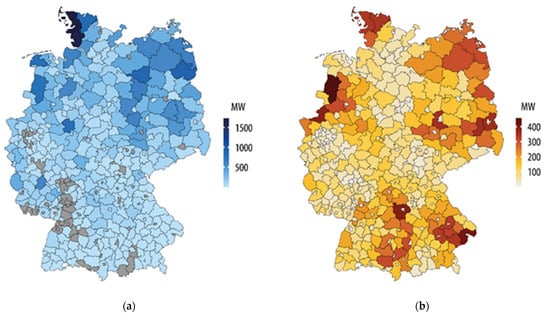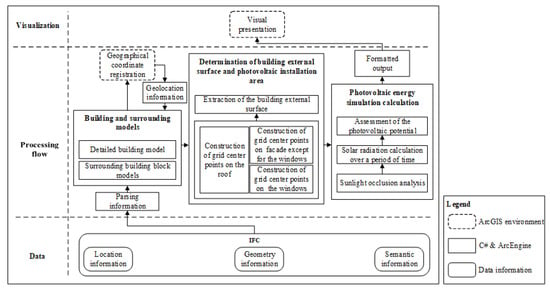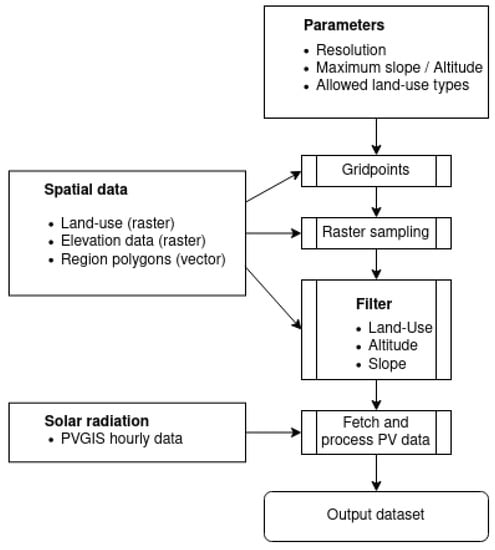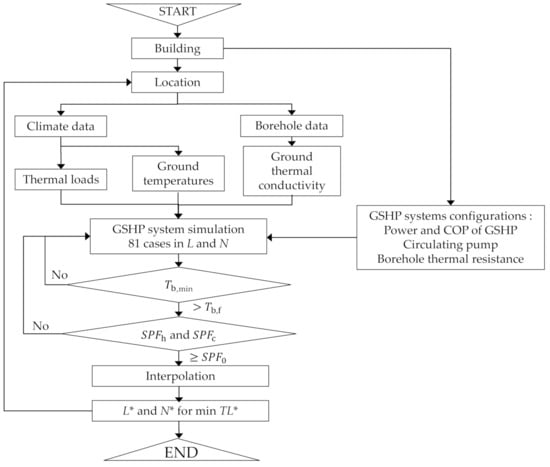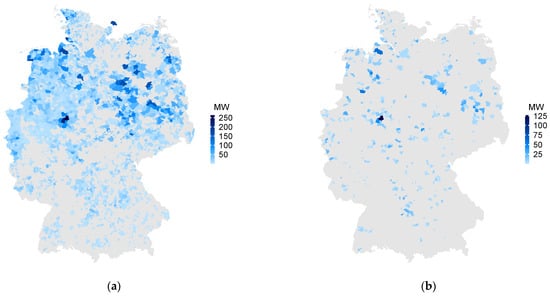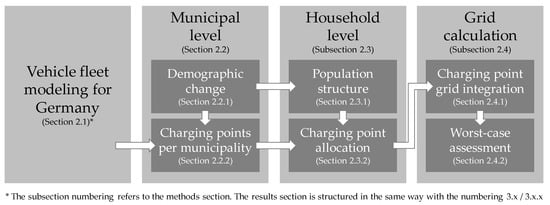Spatial and Temporal Modelling of Renewable Energy Systems
Share This Topical Collection
Editors
 Dr. Luis Ramirez Camargo
Dr. Luis Ramirez Camargo
 Dr. Luis Ramirez Camargo
Dr. Luis Ramirez Camargo
E-Mail
Website
Collection Editor
Electric Vehicle and Energy Research Group (EVERGI), Mobility, Logistics and Automotive Technology Research Centre (MOBI), Department of Electrical Engineering and Energy Technology, Vrije Universiteit Brussel, Brussels, Belgium
Interests: spatiotemporal modeling; geoinformatics; renewable energies; renewable fuels; energy demand modeling; reanalysis; energy comunitites; optimization
 Dr. Johannes Schmidt
Dr. Johannes Schmidt
 Dr. Johannes Schmidt
Dr. Johannes Schmidt
E-Mail
Website
Collection Editor
Institute for Sustainable Economic Development, University of Natural Resources and Life Sciences, Peter Jordan-Str. 82, 1190 Vienna, Austria
Interests: renewable energies; renewable fuels; energy transition; sustainable development
Topical Collection Information
Dear Colleagues,
This topical collection addresses the spatial and temporal modelling of renewable energy systems, both in a prospective as well as in a retrospective manner. Therefore, contributions that model the characteristics of future renewable energy systems are equally welcome as contributions which assess the characteristics of the past performance and characteristics of renewable energies. Papers may reach purely climate-based assessments of simulated renewable generation time series to full energy system models used to better understand energy systems with high shares of renewables.
Studies may, for instance
- Improve our understanding of how climate data can be used to model renewables
- Show the spatial and temporal variability of renewable energy sources
- Assess the complementarity of different renewable energy sources or locations
- Derive land availability scenarios for renewable energies, based on climatic, technical, economic, or social criteria
- Assess past spatial deployment patterns of renewables
- Assess past impacts on land cover and land use change, including impacts on biodiversity and other environmental indicators
- Derive integrated scenarios of energy systems with high shares of renewables (including systems from the local scale e.g. in the form of local energy communities on the national or continental scale).
The objective of the topical collection is to keep track of recent advances in the field of renewable energy system models. Our focus is on full papers of presentations made at the European Geoscience Union at the Session ‘Spatial and temporal modelling of renewable energy systems’ of the Division on Energy, Resources and the Environment, but we are not limited to them. We welcome papers from the global scientific community dedicated to climatic and technical issues, policy-making, forecasting and real-time applications concerning renewable energy systems.
Dr. Luis Ramirez Camargo
Dr. Johannes Schmidt
Prof. Dr. Wolfgang Dorner
Collection Editors
Manuscript Submission Information
Manuscripts should be submitted online at www.mdpi.com by registering and logging in to this website. Once you are registered, click here to go to the submission form. Manuscripts can be submitted until the deadline. All submissions that pass pre-check are peer-reviewed. Accepted papers will be published continuously in the journal (as soon as accepted) and will be listed together on the collection website. Research articles, review articles as well as short communications are invited. For planned papers, a title and short abstract (about 250 words) can be sent to the Editorial Office for assessment.
Submitted manuscripts should not have been published previously, nor be under consideration for publication elsewhere (except conference proceedings papers). All manuscripts are thoroughly refereed through a single-blind peer-review process. A guide for authors and other relevant information for submission of manuscripts is available on the Instructions for Authors page. ISPRS International Journal of Geo-Information is an international peer-reviewed open access monthly journal published by MDPI.
Please visit the Instructions for Authors page before submitting a manuscript.
The Article Processing Charge (APC) for publication in this open access journal is 1900 CHF (Swiss Francs).
Submitted papers should be well formatted and use good English. Authors may use MDPI's
English editing service prior to publication or during author revisions.
Keywords
- spatial modeling
- spatiotemporal modeling
- renewable energies
- energy transition
Published Papers (8 papers)
Open AccessArticle
Spatiotemporal Modeling of the Electricity Production from Variable Renewable Energies in Germany
by
Reinhold Lehneis, David Manske, Björn Schinkel and Daniela Thrän
Cited by 11 | Viewed by 5538
Abstract
In recent years, electricity production from wind turbines and photovoltaic systems has grown significantly in Germany. To determine the multiple impacts of rising variable renewable energies on an increasingly decentralized power supply, spatially and temporally resolved data on the power generation are necessary
[...] Read more.
In recent years, electricity production from wind turbines and photovoltaic systems has grown significantly in Germany. To determine the multiple impacts of rising variable renewable energies on an increasingly decentralized power supply, spatially and temporally resolved data on the power generation are necessary or, at least, very helpful. Because of extensive data protection regulations in Germany, especially for smaller operators of renewable power plants, such detailed data are not freely accessible. In order to fill this information gap, simulation models employing publicly available plant and weather data can be used. The numerical simulations are performed for the year 2016 and consider an ensemble of almost 1.64 million variable renewable power plants in Germany. The obtained time series achieve a high agreement with measured feed-in patterns over the investigated year. Such disaggregated power generation data are very advantageous to analyze the energy transition in Germany on a spatiotemporally resolved scale. In addition, this study also derives meaningful key figures for such an analysis and presents the generated results as detailed maps at county level. To the best of our knowledge, such highly resolved electricity data of variable renewables for the entire German region have never been shown before.
Full article
►▼
Show Figures
Open AccessArticle
Estimating the Photovoltaic Potential of Building Facades and Roofs Using the Industry Foundation Classes
by
Xiu Lu, Guannan Li, Andong Wang, Qingqin Xiong, Bingxian Lin and Guonian Lv
Cited by 4 | Viewed by 4944
Abstract
Photovoltaic energy generation has gained wide attention owing to its efficiency and environmental benefits. Therefore, it has become important to accurately evaluate the photovoltaic energy generation potential of building surfaces. As the number of building floors increases, the area of the facades becomes
[...] Read more.
Photovoltaic energy generation has gained wide attention owing to its efficiency and environmental benefits. Therefore, it has become important to accurately evaluate the photovoltaic energy generation potential of building surfaces. As the number of building floors increases, the area of the facades becomes much larger than that of the roof, providing improved potential for photovoltaic equipment installation. Conventional urban solar potential evaluation methods are usually based on light detection and ranging (LiDAR). However, LiDAR can only be used in existing buildings, and the lack of semantic information in the point cloud data generated by LiDAR makes it impossible to evaluate the photovoltaic potential of facades (including details such as windows) in detail and with accuracy. In this study, we developed a method to accurately extract facades and roofs in order to evaluate photovoltaic potential based on the Industry Foundation Classes. To verify the feasibility of this approach, we used a building from Xuzhou city, Jiangsu province, China. The simulation results indicate that, out of the total building photovoltaic installable area (8995 m
2), that of the facade is 8240 m
2. The photovoltaic potential of the simulated building could reach 1054.69 MWh/year. The sensitivity studies of the grid resolution, the time interval and the computation time confirmed the reasonability of the determined conditions. The method proposed offers great potential for energy planning departments and the improved utilization of buildings.
Full article
►▼
Show Figures
Open AccessEditor’s ChoiceArticle
A Spatially Highly Resolved Ground Mounted and Rooftop Potential Analysis for Photovoltaics in Austria
by
Christian Mikovits, Thomas Schauppenlehner, Patrick Scherhaufer, Johannes Schmidt, Lilia Schmalzl, Veronika Dworzak, Nina Hampl and Robert Gennaro Sposato
Cited by 15 | Viewed by 8558
Abstract
Austria aims to meet 100% of its electricity demand from domestic renewable sources by 2030 which means, that an additional 27
/
of renewable electricity generation are required, thereof 11
/
from photovoltaic. While some
[...] Read more.
Austria aims to meet 100% of its electricity demand from domestic renewable sources by 2030 which means, that an additional 27
/
of renewable electricity generation are required, thereof 11
/
from photovoltaic. While some federal states and municipalities released a solar rooftop cadastre, there is lacking knowledge on the estimation of the potential of both, ground mounted installations and rooftop modules, on a national level with a high spatial resolution. As a first, in this work data on agricultural land-use is combined with highly resolved data on buildings on a national level. Our results show significant differences between urban and rural areas, as well as between the
Alpine regions and the
Prealpine- and Easter Plain areas. Rooftop potential concentrates in the big urban areas, but also in densely populated areas in Lower- and Upper Austria, Styria and the Rhine valley of Vorarlberg. The ground mounted photovoltaic potential is highest in Eastern Austria. This potential is geographically consistent with the demand and allows for a production close to the consumer. In theory, the goal of meeting 11
/
in 2030 can be achieved solely with the rooftop PV potential. However, considering the necessary installation efforts, the associated costs of small and dispersed production units and finally the inherent uncertainty with respect to the willingness of tens of thousands of individual households to install PV systems, installing the necessary solar PV on buildings alone is constrained.
Full article
►▼
Show Figures
Open AccessArticle
Nationwide Determination of Required Total Lengths of Multiple Borehole Heat Exchangers under Variable Climate and Geology in Japan
by
Yoshitaka Sakata, Takao Katsura and Katsunori Nagano
Cited by 2 | Viewed by 2990
Abstract
This study determined the required lengths of borehole heat exchangers (BHEs) in ground-source heat pump systems for heating/cooling a building (with 300 m
2 of floor area) across Japan’s four main islands through a simulation approach. Hourly thermal loads were estimated in 10
[...] Read more.
This study determined the required lengths of borehole heat exchangers (BHEs) in ground-source heat pump systems for heating/cooling a building (with 300 m
2 of floor area) across Japan’s four main islands through a simulation approach. Hourly thermal loads were estimated in 10 km gridded cells based on the outside temperature and humidity. Three-dimensional estimates of ground thermal conductivity from our previous study at the depths of the BHEs were used. A 5-year system operation was simulated in a total of 4059 cells with 81 combinations of individual lengths and total numbers of BHEs to determine the shortest total length required to achieve sustainable use and targeted performance. The optimal combination of individual length and total number varied regionally due to climate conditions and locally among adjacent cells due to geological conditions. The total required lengths ranged widely from 78 to 1782 m. However, the lengths were less than 400 m in 85% of the cells. Additionally, cost-effectiveness in 69% of the cells was shown by reducing the total lengths to half or less of those in the practical method. The reduction could potentially increase the feasibility of heat pump system use in Japan. The total lengths were dependent on the heating/cooling loads approximately as secondary-polynomial functions, but the relations with the ground thermal conductivity were not clear.
Full article
►▼
Show Figures
Open AccessArticle
Modeling of the German Wind Power Production with High Spatiotemporal Resolution
by
Reinhold Lehneis, David Manske and Daniela Thrän
Cited by 17 | Viewed by 6740
Abstract
Wind power has risen continuously over the last 20 years and covered almost 25% of the total German power provision in 2019. To investigate the effects and challenges of increasing wind power on energy systems, spatiotemporally disaggregated data on the electricity production from
[...] Read more.
Wind power has risen continuously over the last 20 years and covered almost 25% of the total German power provision in 2019. To investigate the effects and challenges of increasing wind power on energy systems, spatiotemporally disaggregated data on the electricity production from wind turbines are often required. The lack of freely accessible feed-in time series from onshore turbines, e.g., due to data protection regulations, makes it necessary to determine the power generation for a certain region and period with the help of numerical simulations using publicly available plant and weather data. For this, a new approach is used for the wind power model which utilizes a sixth-order polynomial for the specific power curve of a turbine. After model validation with measured data from a single wind turbine, the simulations are carried out for an ensemble of 25,835 onshore turbines to determine the German wind power production for 2016. The resulting hourly resolved data are aggregated into a time series with daily resolution and compared with measured feed-in data of entire Germany which show a high degree of agreement. Such electricity generation data from onshore turbines can be applied to optimize and monitor renewable power systems on various spatiotemporal scales.
Full article
►▼
Show Figures
Open AccessArticle
Modeling Spatial Charging Demands Related to Electric Vehicles for Power Grid Planning Applications
by
Philip Gauglitz, Jan Ulffers, Gyde Thomsen, Felix Frischmuth, David Geiger and Alexander Scheidler
Cited by 12 | Viewed by 4477
Abstract
The electrification of the transport sector together with an increasing share of renewable energies has the potential to reduce CO
2 emissions significantly. This transformation requires the rollout of charging infrastructure, which has an impact on power grids. For grid planning and dimensioning
[...] Read more.
The electrification of the transport sector together with an increasing share of renewable energies has the potential to reduce CO
2 emissions significantly. This transformation requires the rollout of charging infrastructure, which has an impact on power grids. For grid planning and dimensioning purposes, it is crucial to assess this rapidly growing impact. We present an approach using socio-economic data such as income levels together with a model for demographic changes to estimate where electric mobility is likely to be concentrated, especially during the transformation phase. We present a total-cost-of-ownership approach for the ramp-up of electric mobility, considering an increased penetration of renewable energies. With the city of Wiesbaden in Germany as an example for an application area, the possible expansion of vehicle ownership and charging points is modeled on the level of individual buildings. Compared to a simpler approach, the detailed model results in more consistent charging point allocations, higher line/transformer loadings and lower bus voltages for the investigated grids. Predicting future distributions of charging points with such a level of detail in terms of ramp-up and spatial resolution proves potentially beneficial for grid analysis and planning purposes, especially in urban areas, where infrastructure changes are expensive and time-consuming.
Full article
►▼
Show Figures
Open AccessEditor’s ChoiceArticle
Generation of Spatiotemporally Resolved Power Production Data of PV Systems in Germany
by
Reinhold Lehneis, David Manske and Daniela Thrän
Cited by 16 | Viewed by 6464
Abstract
Photovoltaics, as one of the most important renewable energies in Germany, have increased significantly in recent years and cover up to 50% of the German power provision on sunny days. To investigate the manifold effects of increasing renewables, spatiotemporally disaggregated data on the
[...] Read more.
Photovoltaics, as one of the most important renewable energies in Germany, have increased significantly in recent years and cover up to 50% of the German power provision on sunny days. To investigate the manifold effects of increasing renewables, spatiotemporally disaggregated data on the power generation from photovoltaic (PV) systems are often mandatory. Due to strict data protection regulations, such information is not freely available for Germany. To close this gap, numerical simulations using publicly accessible plant and weather data can be applied to determine the required spatiotemporal electricity generation. For this, the sunlight-to-power conversion is modeled with the help of the open-access web tool of the Photovoltaic Geographical Information System (PVGIS). The presented simulations are carried out for the year 2016 and consider nearly 1.612 million PV systems in Germany, which have been aggregated into municipal areas before performing the calculations. The resulting hourly resolved time series of the entire plant ensemble are converted into a time series with daily resolution and compared with measured feed-in data to validate the numerical simulations that show a high degree of agreement. Such power production data can be used to monitor and optimize renewable energy systems on different spatiotemporal scales.
Full article
►▼
Show Figures
Open AccessArticle
Integrating Land-Use and Renewable Energy Planning Decisions: A Technical Mapping Guide for Local Government
by
Jiaao Guo, Victoria Fast, Philip Teri and Kirby Calvert
Cited by 12 | Viewed by 7398
Abstract
Land-based, utility-scale renewable energy (RE) systems using wind or solar resources to generate electricity is becoming a decisive solution to meet long-term carbon emission reduction goals. Local governments are responding in kind, by adopting their own goals and/or establishing policies to facilitate successful
[...] Read more.
Land-based, utility-scale renewable energy (RE) systems using wind or solar resources to generate electricity is becoming a decisive solution to meet long-term carbon emission reduction goals. Local governments are responding in kind, by adopting their own goals and/or establishing policies to facilitate successful implementations of RE in their jurisdiction. One factor to successful RE development is to locate the most suitable lands, while continuing to sustain land-based economies and ecosystem services. Local governments often have limited resources; and this is especially true for small, land-constrained local governments. In this paper, we illustrate how a standardized RE technical mapping framework can be used by local governments to advance the implementation of RE in land-constrained areas, through a case study in the Town of Canmore, Alberta. Canmore has a limited municipal area surrounded by the Canadian Rockies, along with complex land-use bylaw and environmentally sensitive habitats. This mapping framework accounts for these conditions as it considers theoretical resources, technically recoverable lands, legally accessible lands, and the spatial capital cost of connecting new RE facilities. Different land-use planning scenarios are considered including changing setback buffers and expanding restrictions on development to all environmentally sensitive districts. The total RE potentials are then estimated based on the least-conflict lands. Technically speaking, even under restrictive land suitability scenarios, Canmore holds enough land to achieve ambitious RE targets, but opportunities and challenges to implementation remain. To eventually succeed in its long-term emission reduction goal, the most decisive step for Canmore is to balance the growth of energy demands, land-use changes, and practicable RE development. Mapping systems that can study the influence of land-use planning decisions on RE potential are critical to achieving this balance.
Full article
►▼
Show Figures





